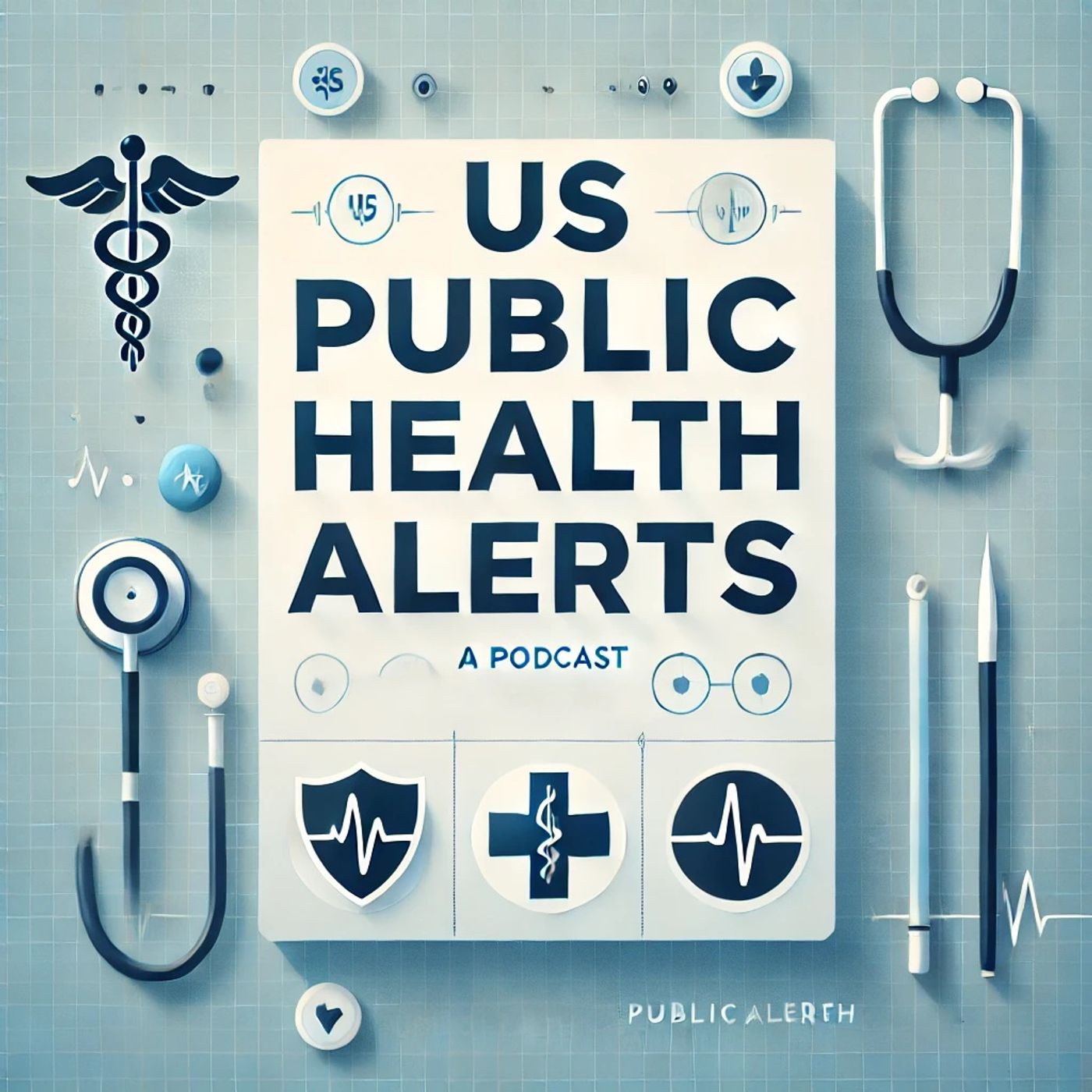Dec 03 2024 3 mins
As of today, December 3, 2024, there are several public health alerts of significance in the United States. These alerts are designed to keep listeners informed about potential health risks and necessary precautions.
Firstly, the Centers for Disease Control and Prevention, commonly known as the CDC, has issued an update regarding the ongoing influenza season. This year, the flu season has begun slightly earlier than usual, with a notable increase in reported cases across multiple states. The CDC advises listeners to get vaccinated if they haven't already, as the flu vaccine remains the most effective way to protect against the virus. Additionally, individuals are encouraged to practice good hygiene, such as frequent handwashing and covering coughs and sneezes, to help prevent the spread of influenza.
Moreover, the CDC has identified an uptick in cases of respiratory syncytial virus, or RSV. RSV is a common respiratory virus that can be serious, especially for infants and older adults. Health officials have emphasized the importance of preventive measures similar to those recommended for influenza to mitigate its spread, including staying home when experiencing symptoms and consulting healthcare providers about vaccinations or treatments if at high risk.
A significant public health alert has also been issued due to a recent E. coli outbreak traced to contaminated produce. The U.S. Food and Drug Administration, known as the FDA, and the CDC are collaborating to identify the source of the contamination, which is affecting several states. Consumers are urged to be cautious about the consumption of leafy greens and to thoroughly wash produce before eating. If anyone experiences symptoms such as severe stomach cramps and diarrhea, they should seek medical attention promptly.
Additionally, due to recent extreme weather events, the Federal Emergency Management Agency, or FEMA, has issued warnings related to potential health risks following such natural disasters. Flooding and storm damage have led to increased risks of mold exposure and waterborne illnesses in certain regions. Residents in affected areas are advised to ensure water supplies are safe and to seek professional help if significant mold is detected in homes.
Finally, listeners should be vigilant regarding ticks as climate changes have expanded their active season. There has been an observed increase in tick-borne diseases, including Lyme disease, in areas where they were previously uncommon. The CDC recommends taking preventive measures such as using insect repellent, wearing long sleeves, and performing tick checks after spending time outdoors.
These health alerts highlight the importance of staying informed and taking proactive measures to ensure personal and community health safety. Listeners are encouraged to keep updated with announcements from official agencies such as the CDC, FDA, and FEMA, and to consult healthcare providers as necessary.
Firstly, the Centers for Disease Control and Prevention, commonly known as the CDC, has issued an update regarding the ongoing influenza season. This year, the flu season has begun slightly earlier than usual, with a notable increase in reported cases across multiple states. The CDC advises listeners to get vaccinated if they haven't already, as the flu vaccine remains the most effective way to protect against the virus. Additionally, individuals are encouraged to practice good hygiene, such as frequent handwashing and covering coughs and sneezes, to help prevent the spread of influenza.
Moreover, the CDC has identified an uptick in cases of respiratory syncytial virus, or RSV. RSV is a common respiratory virus that can be serious, especially for infants and older adults. Health officials have emphasized the importance of preventive measures similar to those recommended for influenza to mitigate its spread, including staying home when experiencing symptoms and consulting healthcare providers about vaccinations or treatments if at high risk.
A significant public health alert has also been issued due to a recent E. coli outbreak traced to contaminated produce. The U.S. Food and Drug Administration, known as the FDA, and the CDC are collaborating to identify the source of the contamination, which is affecting several states. Consumers are urged to be cautious about the consumption of leafy greens and to thoroughly wash produce before eating. If anyone experiences symptoms such as severe stomach cramps and diarrhea, they should seek medical attention promptly.
Additionally, due to recent extreme weather events, the Federal Emergency Management Agency, or FEMA, has issued warnings related to potential health risks following such natural disasters. Flooding and storm damage have led to increased risks of mold exposure and waterborne illnesses in certain regions. Residents in affected areas are advised to ensure water supplies are safe and to seek professional help if significant mold is detected in homes.
Finally, listeners should be vigilant regarding ticks as climate changes have expanded their active season. There has been an observed increase in tick-borne diseases, including Lyme disease, in areas where they were previously uncommon. The CDC recommends taking preventive measures such as using insect repellent, wearing long sleeves, and performing tick checks after spending time outdoors.
These health alerts highlight the importance of staying informed and taking proactive measures to ensure personal and community health safety. Listeners are encouraged to keep updated with announcements from official agencies such as the CDC, FDA, and FEMA, and to consult healthcare providers as necessary.
